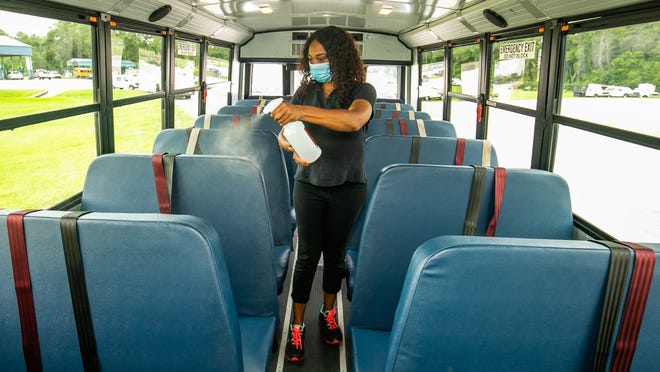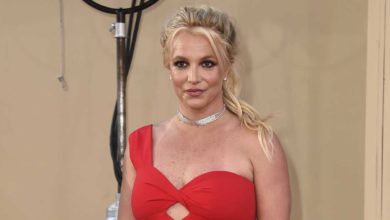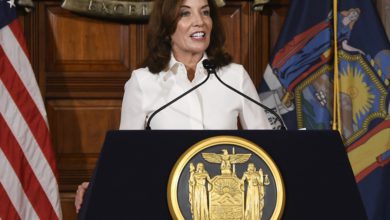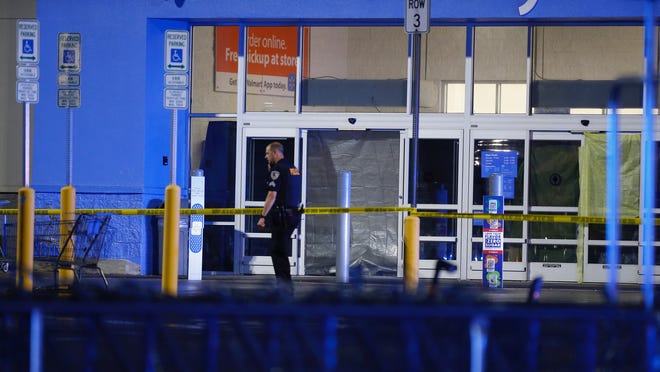Friday's opening ceremony marks the official start of an unprecedented and long-awaited Olympics amid a global pandemic.
Since it was postponed, the coronavirus has been a constant shadow over the Summer Games, altering the landscape of the event and prompting concerns that it will increase the spread of the coronavirus in Japan before distributing it around the world. Others urge the Olympics could bring a hint of joy and relief after a difficult year for so many across the globe.
The Olympics have consistently made headlines for positive COVID-19 tests in the Olympic Village.
"In the short term, excitement might occur and people will enjoy watching TV, cheering the athletes, and it might have a bit of an Olympic atmosphere," said Shinsuke Kobayashi, managing director of the Olympic and Paralympic news office for Japan’s Kyodo News agency, in an interview this week. "But I am worried about what will come afterward."
The arriving athlete delegations are expected to be smaller after organizers asked that athletes arrive no earlier than five days before their first day of competition to avoid overcrowding. The move is part of a set of COVID-19 countermeasures that will now be tested during the opening ceremony.
But public health experts have raised concerns about the effectiveness of the countermeasures, which have been planned for months and laid out in playbooks for participants.
For example, the International Olympic Committee has said it would urge participants to get vaccinated but not require it. About 83% of the U.S. delegation, which includes 613 athletes, have been vaccinated, said Jonathan Finnoff, chief medical officer of the United States Olympic & Paralympic Committee. That means about 100 athletes have not yet received a COVID-19 vaccine.
The Olympics are also hugely unpopular in this year's host country, where polls show 60% to 80% of Japan's residents say the games should not be held this summer.
Olympics opening ceremony live: Parade of nations underway after emotional performance
Team USA athletes:Get to know every athlete at the 2021 Tokyo Olympics
Also in the news:
►The delta variant is one of the most infectious respiratory diseases scientists have ever seen, said Centers for Disease Control and Prevention Director Dr. Rochelle Walensky, according to CNBC. "The delta variant is more aggressive and much more transmissible than previously circulating strains," Walensky told reporters at a briefing Thursday. "It is one of the most infectious respiratory viruses we know of, and that I have seen in my 20-year career."
►Nine firefighters battling the largest wildfire in the nation, the Bootleg Fire in the Fremont-Winema National Forest in Southern Oregon, have tested positive for COVID-19. They are being quarantined away from the fire camp.
►Students, teachers and staff at Chicago Public Schools will be required to wear masks indoors when school begins in August, officials said.
►In Kentucky, 95% of all cases, 92% of hospitalizations and 89% of all deaths between March 1 and July 21 were among partially vaccinated or unvaccinated people, according to Gov. Andy Beshear. Those percentages are from a total of 61,292 cases, 3,109 hospitalizations and 447 deaths.
📈Today's numbers: The U.S. has had more than 34.2 million confirmed COVID-19 cases and 610,264 deaths, according to Johns Hopkins University data. The global totals: More than 192 million cases and 4.1 million deaths. More than 162 million Americans — 48.8% of the population — have been fully vaccinated, according to the CDC.
📘What we're reading: Governors and mayors visited the Oval Office in February to beg for help recovering from the pandemic's economic devastation. Yet now that states, cities and towns across America have been wired $200 billion in emergency aid – one of the largest federal-to-local stimulus efforts in history – many are slow to spend their shares of the money. What to know.
Keep refreshing this page for the latest news. Want more? Sign up for USA TODAY's Coronavirus Watch newsletter to receive updates directly to your inbox and join our Facebook group.
Tennessee to restart vaccine outreach after pausing over political pressure
Tennessee's state government will resume all forms of vaccine outreach, with the narrow exception of social media posts aimed specifically at children, after halting many forms of vaccine advocacy this month in response to conservative political pressure, the state's top health official said Friday.
Health Commissioner Dr. Lisa Piercey said the agency would resume outreach recommending vaccines for children and once again hold vaccination events on school property. Some events at schools will occur as early as next week, Piercey said.
The Tennessee Department of Health drew nationwide attention this month after exclusive reporting by The Tennessean, part of the USA TODAY network, revealed the agency had dramatically scaled back efforts to promote the coronavirus vaccine to minors. The changes came after conservative state lawmakers lambasted the agency for promoting the vaccine to minors and proposed dissolving the entire agency to make the outreach stop.
— Brett Kelman, the Tennessean
3 states contribute to over 40% of positive cases
As the number of COVID-19 cases across the country is rising, three states have contributed to over 40% of all recent positive cases, according to the White House on Thursday.
White House COVID-19 Response Coordinator Jeff Zients said Florida, Texas and Missouri were contributing the highest number of cases, with Florida accounting for one in five positive cases for the second week in a row.
Those states also have some of the lowest rates of vaccination, Zients said, adding that "within communities, these cases are primarily among unvaccinated people."
But in Florida and other states with high case numbers, he said, such as Arkansas, Louisiana, Missouri and Nevada, people are also becoming vaccinated at greater rates than the rest of the country, an encouraging trend.
"People in these states are feeling the impact of being unvaccinated and are responding with action," Zients said.
States with the largest surges in cases including Louisiana, Florida, Arkansas, Missouri and Nevada are seeing pick-ups in vaccinations, said Ashish K. Jha, dean of Brown University's school of public health on Twitter.
"Whether its seeing loved ones sick or something else, it's having an impact," he wrote.
Texas Gov. Greg Abbott recently said he would not impose another mask mandate, while some other states and local officials have implemented them to combat the delta variant.
Nearly half the country has been fully vaccinated, according to the latest data from the Centers for Disease Control and Prevention, but a rise in case numbers is being attributed to the highly spreadable delta variant.
While breakthrough infections do occur among the vaccinated, Zients said 97% of hospitalizations and deaths have been among unvaccinated individuals.
COVID-19 booster shot could help immunocompromised people, experts say
People who are severely immune-compromised should consider getting a third dose of a COVID-19 vaccine, several members of a federal advisory committee said Thursday. The committee members added immunocompromised people should take other precautions like wearing masks and making sure those around them are vaccinated.
The Advisory Committee on Immunization Practices, which doesn't have the regulatory authority to recommend a third shot, presented data at its meeting Thursday that suggested a booster shot was unlikely to cause harm and might benefit someone who is significantly immunocompromised because of cancer or who is on powerful medication to prevent autoimmune reactions or organ rejection.
"There is sufficient data to suggest that an additional dose would be helpful," said Dr. Grace Lee, a committee member and professor of pediatrics at Stanford University School of Medicine in California.
— Karen Weintraub
Italy to require health passes for public activities
The Italian government on Thursday approved a measure that will require individuals participating in public life to present health passes containing information about their COVID-19 status beginning Aug. 6.
The "green" passes will be issued to those who can prove they have received at least one vaccine dose in the last nine months, recovered from COVID in the last six months or tested negative in the last 48 hours.
People will be required to have passes to access public spaces like restaurants, movie theaters, gyms and sports events.
Daily cases in Italy have been on the rise, in part due to large celebrations held after Italy won Europe's soccer championship against England earlier this month.
Italy's premier, Mario Draghi, said the goal of the passes is to keep the economy open while ensuring people can enjoy public life "with the assurance they won’t be next to contagious people."
China rejects WHO's plan to study origins of OOVID-19
China on Thursday rejected the World Health Organization's plan for the second phase of a study into the origins of COVID-19, dismissing a theory that the virus might have leaked from a Chinese lab as a scientifically unsupported rumor. A previous joint investigation including WHO and China found it "extremely unlikely" the virus escaped from the Wuhan Institute of Virology lab.
WHO chief Tedros Adhanom Ghebreyesus last week unveiled a plan to revisit labs and markets in Wuhan, the city where the first cases were identified. Tedros also called for greater transparency from Beijing.
“It is impossible for us to accept such an origin-tracing plan,” Zeng Yixin, vice minister of the National Health Commission, said at a news conference.
The U.S. and some allies claim China has not been forthcoming about details of the early days of the pandemic. Former Vice President Mike Pence, who led President Donald Trump's virus response team, last week claimed evidence strongly suggests the coronavirus "leapt out of the Chinese lab."
China accuses critics of politicizing an issue that should be left to scientists.
Contributing: Christine Brennan and Rachel Axon, USA TODAY; The Associated Press.









